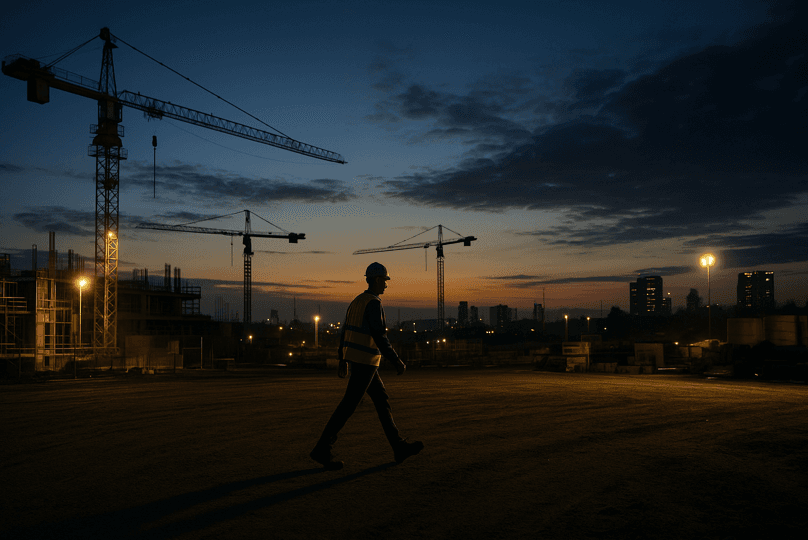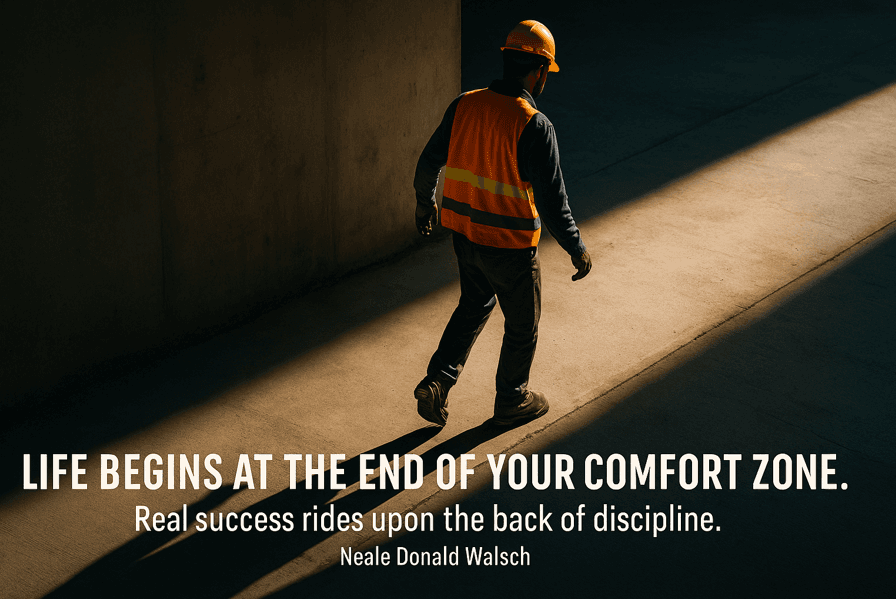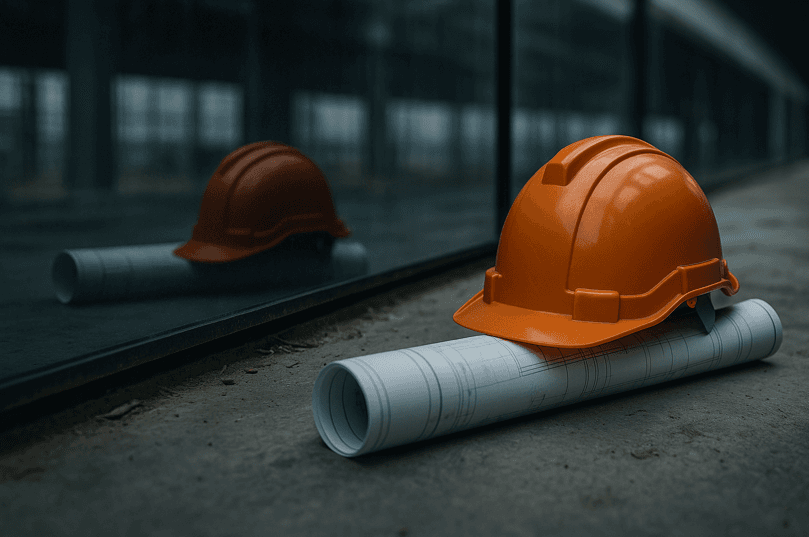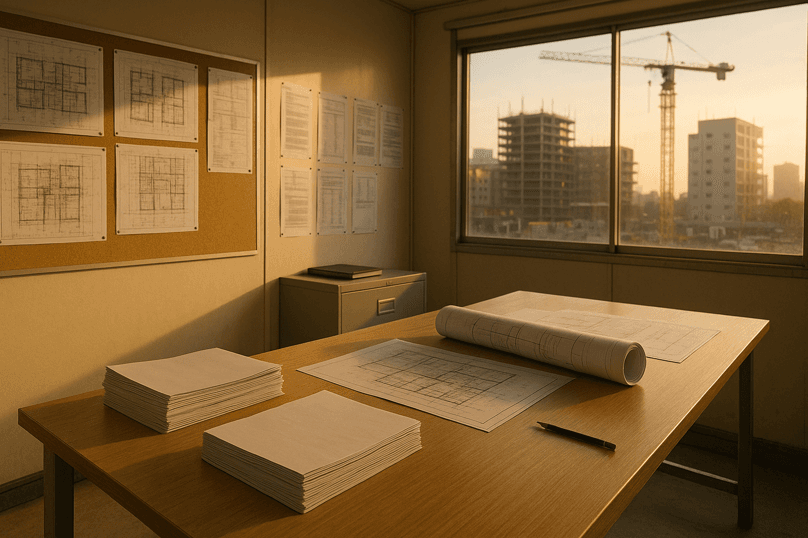Discipline Beats Motivation: Lessons from the Field, the Gym, and the Building Site

Discipline Beats Motivation: Lessons from the Field, the Gym, and the Building Site
We all like to think we’re chasing the best version of ourselves. But let’s be honest, most of what we see online about self-improvement looks like nonsense. Perfect lighting, cold plunges, smiles for the camera, and not much substance. In the real world, particularly in construction and property, life is a lot messier.
The last few years have been challenging for everyone. Markets have been slow, cash flow tight, and workloads heavy. For those of us who run businesses, it is a constant juggling act of admin, debt collection, risk management, and chasing opportunities. When things get tough, it is easy to slip into a negative mindset, to focus on the stress, the people who have let us down, or the circumstances we cannot control.
But if there is one thing I have learned from my own experiences, and from the hundreds of professionals I speak to every year, it is this: we cannot rely on motivation to carry us through. Motivation comes and goes. Discipline does not.
The Mindset Divide
Most of us sit somewhere on the scale between positive and negative thinking, and we drift depending on what is happening in life. One bad project, one difficult client, one missed promotion, and we start blaming others: poor management, toxic culture, lack of opportunity. And yes, sometimes those things are real. But blaming them will not move us forward.
What does? Taking ownership. Finding solutions. Taking responsibility for our own improvement.

In recruitment, I see this play out daily. Employers tell me about staff who are “too nice” or “need direction.” Candidates tell me their boss is holding them back. Both may be right, but both are missing something: a sense of ownership.
Your manager might not be perfect. Your company might not have a great culture. But the question is, what are you doing to make things better? Because if you can learn to get the best out of your manager, your team, and yourself, you will create opportunities rather than wait for them.
The Kapitol Mindset
A few weeks ago, I sat down with David Caputo and Andrew Deveson, founders of Kapitol Group, for the 100th episode of The Building Talks Podcast (due for release on November 11th). Kapitol has become one of the benchmark builders in Australia, and it is no accident.

Off-mic, we spoke about how they manage stress and performance while leading a rapidly growing business. Both talked about daily habits: training, lifting heavy weights, cold plunges, sharing ideas, and challenging each other to improve. They focus heavily on their mindset, not by chasing positivity, but by controlling their responses to pressure.
They have learned how to walk through the front door at the end of a long day and leave the stress at work. That isn’t luck or personality. That is discipline - the ability to control your focus and effort no matter how you feel.
Motivation Is Temporary. Discipline Is Forever.
We all know the feeling of waking up tired and unmotivated. Maybe you have had a rough week, maybe the project is dragging, maybe you have just had enough. That is normal. What separates the top 20 percent from the rest is the ability to show up and perform well anyway.

Motivation is emotional. It depends on sleep, energy, stress, and circumstance. Discipline is mechanical. It is built into your system. It keeps you doing the hard things when motivation disappears.
That is what sets elite performers apart. Not that they are always motivated, but that when motivation fades, discipline takes over.
The Reality of Hard Work
Construction and property are demanding industries. The hours are long, the pressure is constant, and the stakes are high. But that is exactly why we are paid what we are paid. If it were easy, anyone could do it, and it would have been automated or offshored by now.

Discipline is what keeps you sharp when you are tired, makes you tackle the tough conversations when you would rather avoid them, and pushes you to complete difficult tasks efficiently and accurately even when you don’t feel like it. That is what defines a professional.
And those habits, repeated over months and years, shape your reputation, open doors, and build the trust that leads to bigger opportunities.
Discipline Defined
To me, discipline is the ability to complete hard and often unenjoyable tasks accurately, efficiently, and on time. It is doing the work you don’t want to do, at the time you least want to do it, and doing it well. It means facing the stress head-on, performing under pressure, and repeating that process until it becomes normal. With all that stress and hard work, we need to be disciplined in ensuring we have the right rest and recouperation, but then get stuck back in to the hard stuff, once the batteries are recharged.

When we do this consistently, those hard tasks become easier, less stressful, and we become better than most at doing them. That is where growth happens. That is where our careers start to accelerate.
One of my favourite sayings has always been:
“Life begins at the end of your comfort zone.” - Neale Donald Walsch
But over time, I have come to add something else to it:
“Real success rides upon the back of discipline.”
Stepping outside your comfort zone is the first move. Staying there, applying discipline day after day, through fatigue, setbacks, and distractions, is where success actually takes shape.
We Lie to Ourselves More Than Anyone Else Ever Will
When we see people in our industry achieving success, it is easy to make assumptions. We might think, they work too hard, they must be obsessed, they are just wired differently. Sometimes we even talk ourselves out of wanting that success, telling ourselves I wouldn’t want that lifestyle anyway.
But often, that is a lie we tell ourselves to stay comfortable. We use it to justify why we are not doing the work or showing the discipline that would actually make us more successful.

The truth is, we lie to ourselves more than anyone else ever will. We tell ourselves stories to protect our ego, to avoid admitting that we are not doing the things we know we should. It is easier to blame a manager, a company, or the market than to face the fact that we are not being disciplined enough to push through.
This is something I have recognised in myself at times too. Through my own career and business ups and downs, and through countless conversations with leaders, developers, and construction professionals on The Building Talks Podcast, I have learned that the most consistent achievers have one common thread, they take full responsibility for their outcomes. They don’t sugarcoat reality. They face it, they adapt, they keep working and are extremely disciplined!
Why This Matters to Our Industry
After nearly two decades recruiting in the built environment, I have met brilliant project managers, General Manager, Development Directors and Site leaders who stand out not because they are the loudest, but because they are relentless. They take pride in the boring stuff, the planning, the follow-up, the documentation, and the tough conversations. And they do it every single day.

They don’t make excuses. They don’t blame others – and it’s hard not to. They learn, adjust, and keep moving. Those people rarely need to chase jobs, because the opportunities find them. Their reputation does the talking.
Taking Ownership
If you are in a tough situation, ask yourself:
- What part of this can I control?
- What can I improve in myself to make it better?
- Am I relying on motivation, or have I built discipline into my habits?

Once you develop discipline, you become unshakable. You will still have bad days, tough clients, and stressful deadlines, but they won’t derail you. You will keep performing, and people will notice.
The Bottom Line
Discipline is the foundation of consistency. Consistency builds trust. Trust creates opportunity. That is the formula. Not luck, not timing, and not a “perfect employer.”
It is supposed to be hard. It is supposed to be uncomfortable. But if you build discipline into how you operate, the rewards will come.
Motivation might get you started, but discipline keeps you moving when everything else tells you to stop.
And that is where real success lives, right on the other side of your comfort zone.